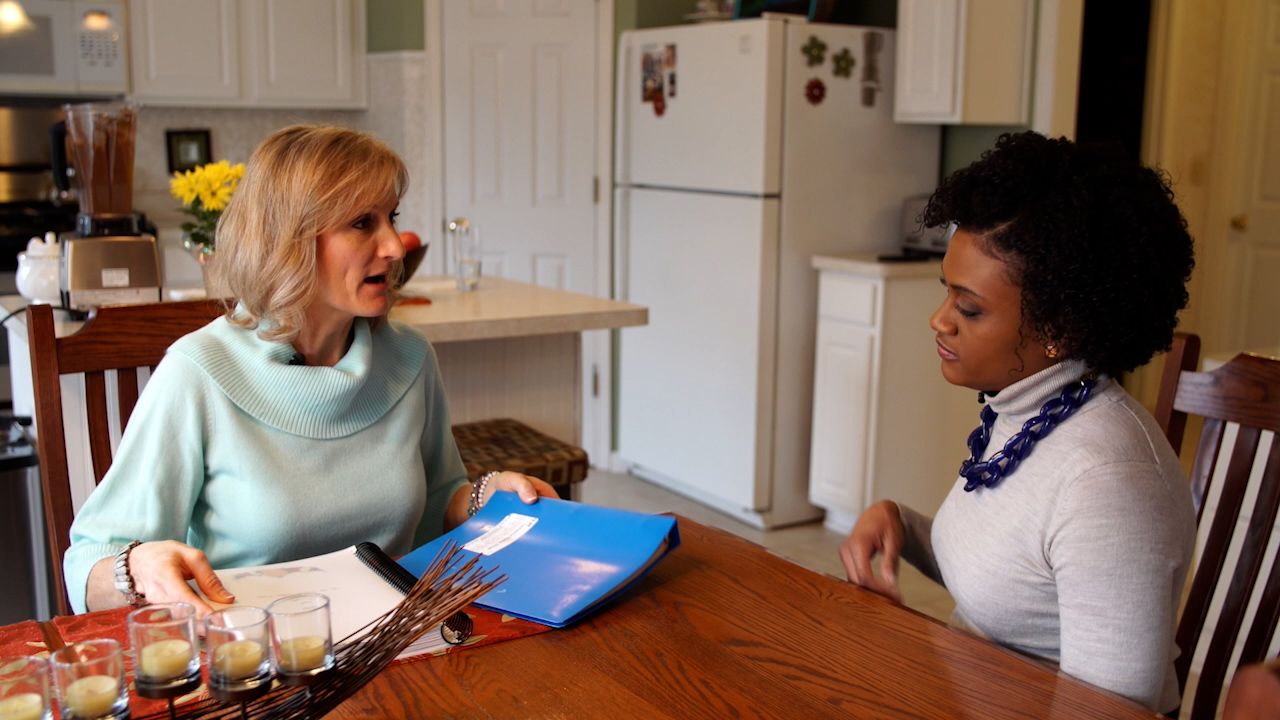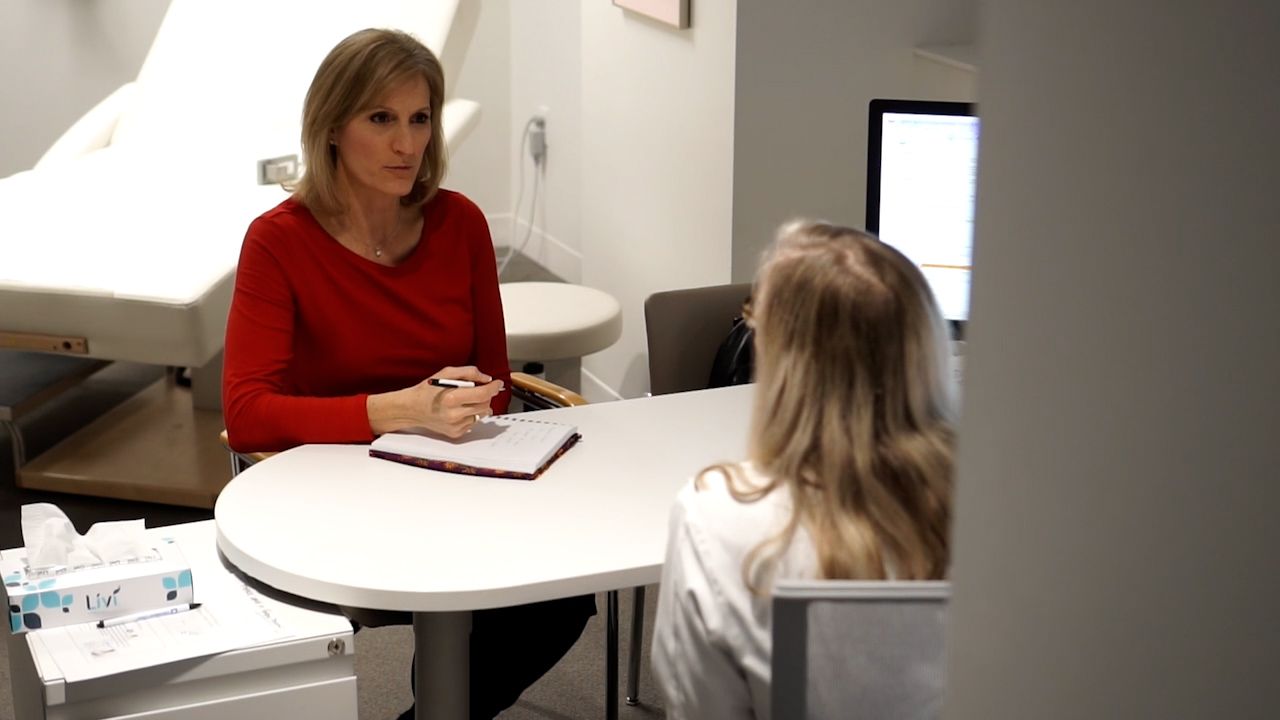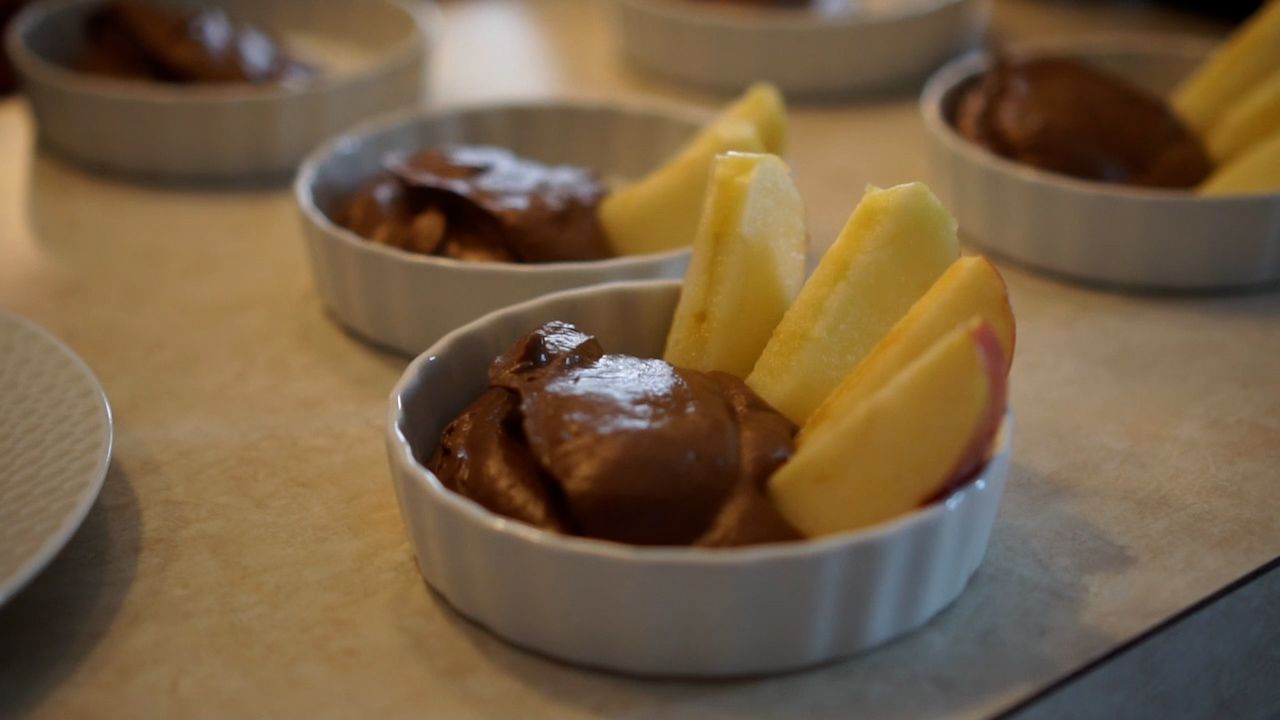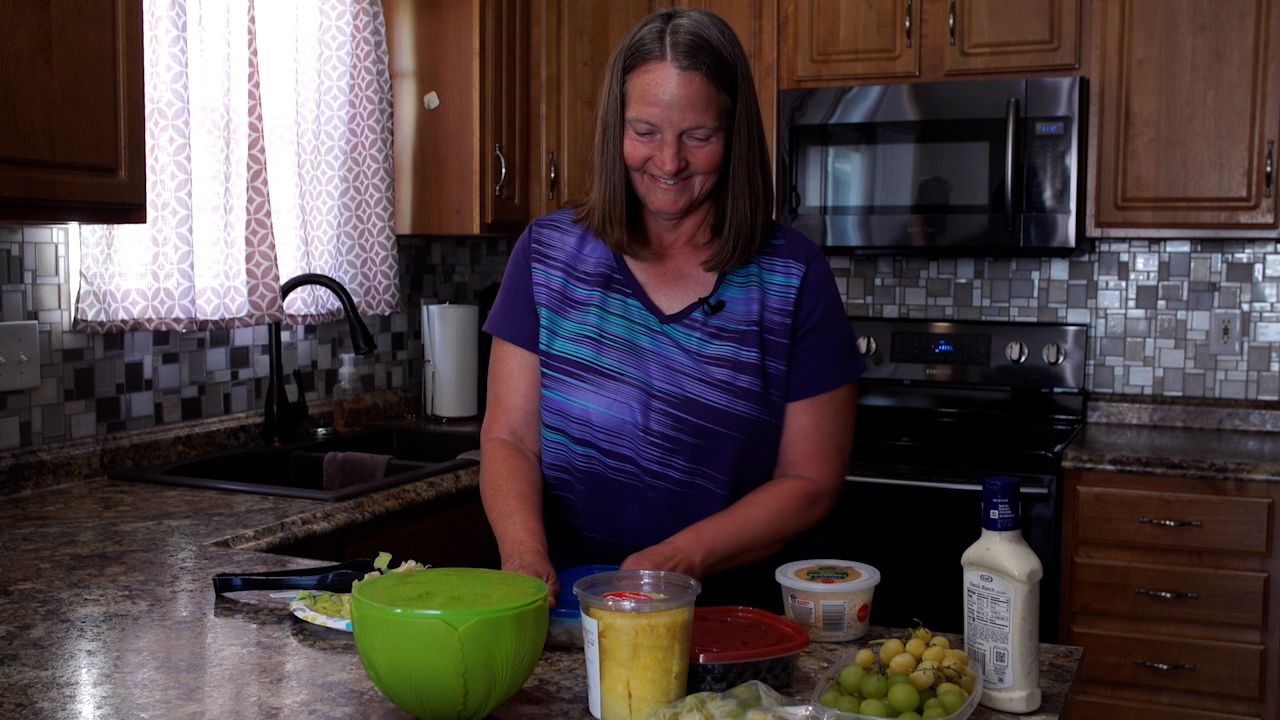Watch Part 1 of our series on sugar
Laura Kuczynski’s love for cooking was developed through a rich family tradition. She sees baking for her loved ones as her legacy, passed down by her late mother.
“My mom's name was Luanne, but they called her Lanny since she was a child, and this is a little history of all the recipes,” Kuczynski said, as she flipped through two cookbooks made by her mother.
The cookbooks are a treasure trove of family recipes, a poignant example of how important food culture is for many families.
“[Food is] tied to memories and family and love," said Kuczynski. “When I show up to a room, everyone says, what did Laura bring, where's her dessert? They beeline over to it so they can all sample it.”

But Kuczynski’s relationship with food began to shift 15 years ago, after she lost a baby 24 weeks into her pregnancy. She was diagnosed with a little known autoimmune condition, called antiphospholipid syndrome.
“My body was feeding blood clots to the placenta. So our daughter wasn't getting the proper blood flow and nourishment,” said Kuczynski .
With good medical care, Kuczynski was eventually able to give birth to a healthy daughter, Julia.
But four years ago she had a stroke caused by her condition; it was then she knew a drastic change was needed. She decided to try a different, more holistic approach, and she reached out to Dr. Elizabeth Bradley, Medical Director, Cleveland Clinic Center for Functional Medicine.

“Functional medicine is a medical approach for chronic disease, for patients looking at the root cause of why they're having their medical concerns,” said Bradley.
Kuczynski met with a team of specialists; doctors, nutritionists, a health coach and a therapist.
One of the first steps was cutting foods out of her diet and gradually adding them back in to help pinpoint the problem foods. It is called an elimination diet.
“I had to go dairy free, gluten free and sugar free, which are the hardest things because I love bread, I love cheese, and I love sweets,” said Kuczynski .
The research is evolving, but a growing number of studies suggest these foods can exacerbate autoimmune diseases by increasing inflammation in our bodies. Particularly sugar.
“Sugar is just pure calories that just, that does not supply any nutritive value to our body,” said Bradley. “I wouldn't even call it a food.”
Bradley said sugar traps many in a vicious cycle, because it triggers the release of dopamine, the chemical closely linked to pleasure in the brain.
“The same thing happens when people smoke cigarettes,” said Bradley. “They’ll take their cigarette, and then two minutes, all of a sudden they'll do the 'aaaah.' You can tell the dopamine is being released.”
Dr. Lewis Cantley, an expert in cancer metabolism and a professor of medicine at Weill Cornell Medicine, explains that sugar helps the body store fat, so our primitive ancestors who gorged on fruit were simply trying to make it through food-scarce winters.
“Everybody had to put on about 40 pounds during the last months of the growing season when fruit was available,” said Cantley. “So anyone who was not addicted to fruit a hundred thousand years ago would die.”
While our world has changed, our bodies haven’t. We’re still hooked on sugar, and studies have linked our excess consumption of it to obesity, diabetes, heart disease, and even cancer.
Kuczynski has embraced her new, nearly sugar-free diet, noting that “Cutting out the sugar, cutting out gluten and dairy for me has helped with inflammation."
Her blood tests showed slight improvements with her disorder, but the biggest changes she noticed were in the way her body felt.
“It’d be like putting two heavy sweaters on and walking around all day and then taking the sweaters off, andyou just feel lighter," said Kuczynski.
She has also discovered she doesn’t need "added sugar" to bake tasty treats, like a sugar-free chocolate mousse.
“I never thought this would work, but it's made with avocadoes and medjool dates," Kuczynski said. So the dates actually are what gives it the sweetness and cacao powder."

Dr. Bradley hopes this approach of finding healthier takes on classic treats becomes a more common way to enjoy nostalgic foods.
“Part of it's educating and taking tradition and making a newer variety that tastes just as good, and if it tastes just as good, then we may be willing to have that,” said Bradley.
It’s a challenge Kuczynski takes seriously: She even managed to win her family over with her take on a favorite double-decker chocolate cake from her childhood.
“They ate it and had no idea, they loved it, everyone asked for seconds and thirds, really. It was delicious,” said Kuczynski. “It was satisfying to know that I could make dessert and share it with people who loved it and see them smile and make them happy.”







